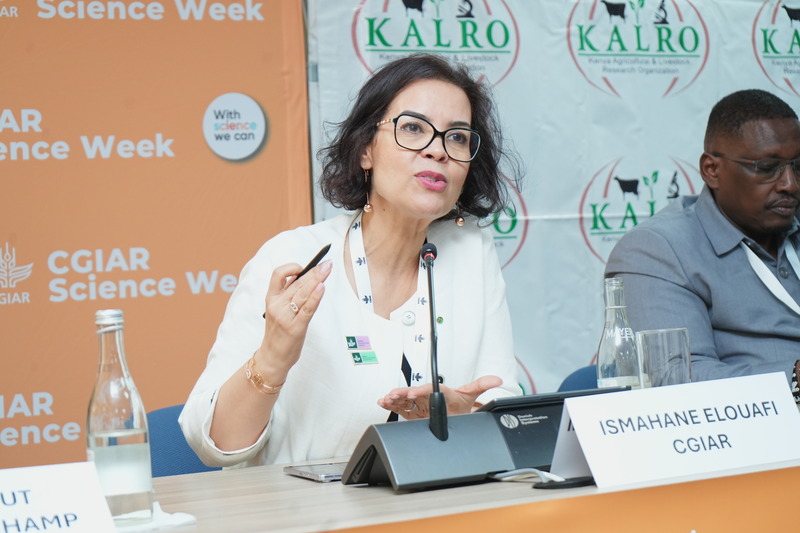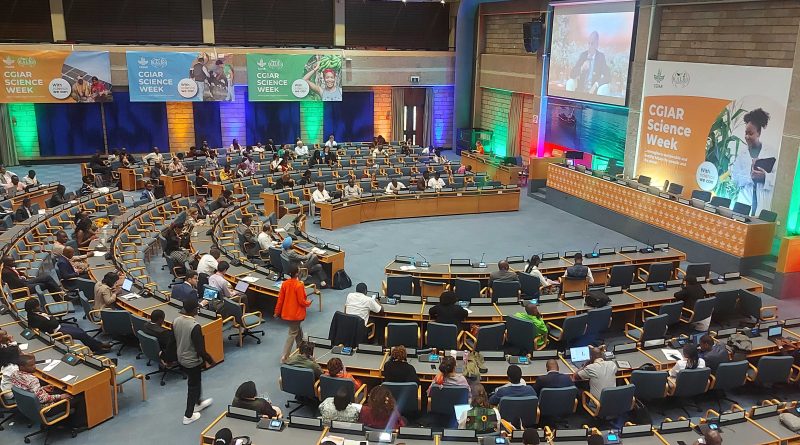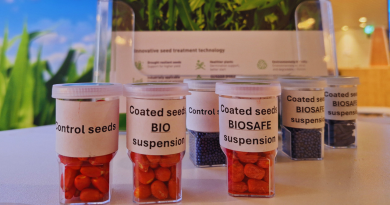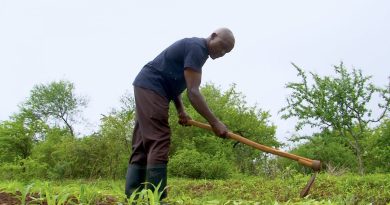CGIAR Launches Flagship Report to Help Decision-Makers Build Resilient Food Systems
Carolyne Tomno

With global food systems under increasing pressure from climate change, conflict, and inequality, CGIAR has unveiled a groundbreaking new report aimed at turning scientific insight into real-world action.
Insight to Impact: A Decision-Maker’s Guide to Navigating Food System Science was launched during the CGIAR Science Week, held at the United Nations Campus in Nairobi.
This first-of-its-kind flagship report is designed to help policymakers, investors, and partners translate decades of agricultural research into practical, scalable solutions—particularly for low- and middle-income countries.
“Policy is influenceable, but what I hear from many decision-makers is that they are often missing the right data, the information needed for policy—along with clarity and pragmatism,” said Ismahane Elouafi, Executive Managing Director of CGIAR.
“This is very clear in the report, so the next steps will be to engage deeply with policymakers so we can really turn insights into impact.”
Science with Solutions
The report answers 20 critical questions most often raised by policymakers and offers 20 science-backed solutions already tested in real-world conditions. Some of the standout case studies include:
•Triple Wins with Improved Crops & Livestock: In sub-Saharan Africa, the EnviroCow breed helps farmers cut feed costs and emissions while increasing income.
In Pakistan, zinc-rich wheat now reaches over 100 million people each year—boosting zinc intake by 21%, particularly among women and children.
•Smarter Fertilizer Use in Ethiopia:
Farmers saw yield increases of up to 29% and additional income of USD 270 per hectare by using localized fertilizer advice tailored to slope, soil health, and climate. The initiative has already expanded to 23 districts.
•Climate-Smart Rice in Vietnam:
More than 33,000 farmers have been trained in water-saving, methane-reducing rice farming practices. The approach is now part of Vietnam’s national climate policy.
Each case study comes with implementation tools like expert contacts, guides, impact assessments, and scaling resources making the insights immediately actionable.
Bridging Global Science and Local Solutions
Backed by support from the German Federal Ministry for Economic Cooperation and Development (BMZ) and GIZ, the report reflects contributions from over 70 decision-makers across government, regional organizations, and the private sector.
Together, they helped shape the seven key priorities addressed in the report—from clearer science communication to stronger alignment with national development goals.
“The future of farming is here,” said Lusike Wasilwa of the Kenya Agricultural and Livestock Research Organisation (KALRO).
“We have to work and partner together to ensure we are reaching smallholders and developing data to inform policy.”
To support this mission, CGIAR also launched the Insight to Impact Policy Champions Network, a coalition of partners committed to ensuring that scientific insights are turned into real-world change.
A Call to Action
“We face the triple challenge of poverty, inequality, and unemployment,” said Dhesigen Naidoo, a member of CGIAR’s Integrated Partnership Board.
“Our ability to use the best science, technology, and innovation to inform decision-making at all levels is absolutely paramount.”
Naidoo urged all users of the report to act as an “ambassadorial community” that helps ignite change on the ground—working collaboratively to co-create solutions.
What’s Next?
CGIAR plans to create tailored versions of the report to meet specific national and regional needs. Future editions in the report series will focus on emerging challenges and global processes—continuing to close the gap between research and policy.
With the Insight to Impact report, CGIAR is not just sharing data—it’s building a roadmap for transforming food, land, and water systems through science and collaboration.




